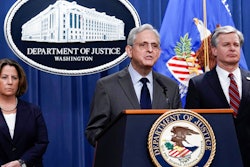GENEVA (AP) -- The World Trade Organization launched a formal investigation Friday of the United States' ban on Chinese poultry, after the Asian country alleged that Washington was fundamentally breaking global commerce rules.
Beijing told the WTO's dispute settlement body that Washington had imposed "naked discriminative protectionism measures" in completely banning Chinese chicken products entering the U.S. market. The United States countered that it was still examining whether Chinese poultry was safe for human consumption.
It was China's second request for the WTO to establish an investigative panel. The U.S. blocked China's first request last month, but could not do so again under WTO rules.
The trade body confirmed that a panel had been set up to deliver a ruling at some point next year.
China and the U.S. banned each others' poultry in 2004 following an outbreak of bird flu in Asia. But China lifted the ban after a few months and complains that Washington refuses to do the same.
Since then, China has imported more than 4 million tons of U.S. poultry -- mostly feet and other parts of birds that are popular in China but not elsewhere.
"The United State has completely banned the importation of poultry products from China since 2007 through its annual appropriation acts and other related measures," China said in a statement.
"These unilateral measures fundamentally violate relevant WTO rules, significantly impede the ordinary Sino-U.S. trade in poultry products, and substantially impair the rights and benefits that Chinese enterprises deserve to enjoy," it said. "These measures are naked discriminative protectionism measures, which are strongly opposed by the Chinese government and enterprises."
Beijing is protesting a measure in the 2009 U.S. federal spending bill, signed by President Barack Obama in March, that extended the U.S. ban by blocking any funds from being used to facilitate imports of poultry products from China.
The United States denied that the ban was discriminatory or protectionist, and said its authorities were "continuing to work together to reach an objective, science-based response" to China's request for equal treatment of its poultry exports.
"These authorities are examining whether China's food safety system ensures that poultry products from China meet the U.S. level of protection, and they are proceeding in a way that both safeguards human life and health, and is consistent with U.S. obligations" at the WTO.
Washington added that it didn't believe the dispute should disrupt normal trade relations between the superpowers in other areas.
"The United States and China have a broad and deep trade relationship, and we continue to work together on a bilateral and multilateral basis to resolve any problems that may arise," it said.
The WTO can authorize sanctions against countries failing to comply with trade rules, but usually after years of litigation. China and the U.S. still have a number of outstanding disputes left over from former U.S. President George W. Bush's tenure.
China joined the WTO in 2001.





















